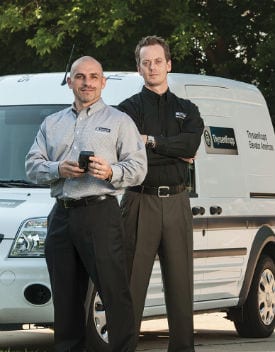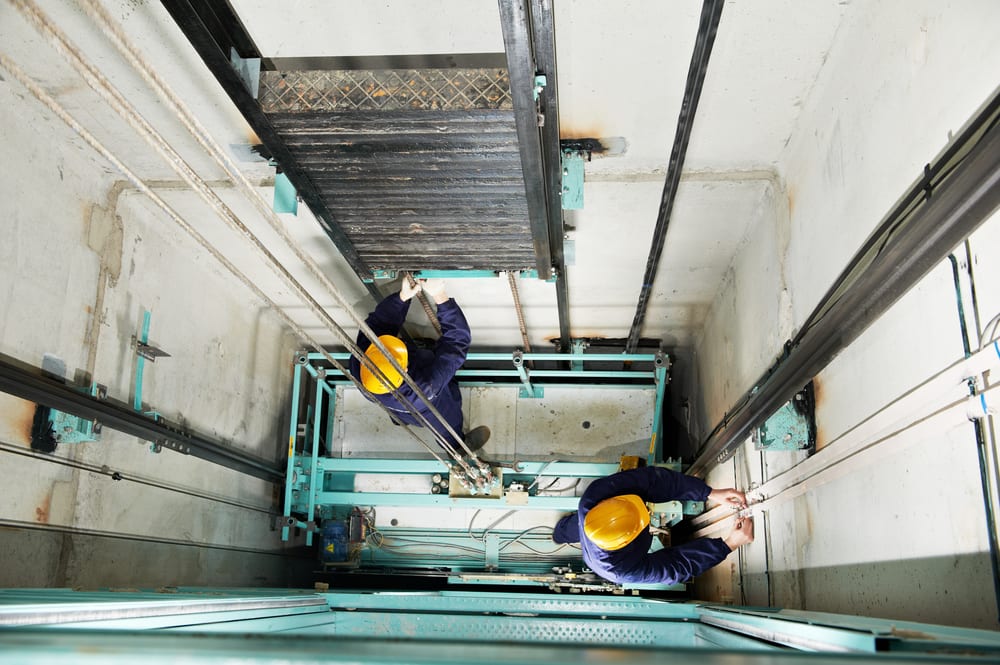The following article first appeared on Field Technologies Online and has been excerpted here with permission.
Times change. Technology changes faster. With any enterprise mobility project, a refresh will inevitably be required, and when that time comes, IT and operational staff will have to select new hardware that can take advantage of new technology advancements as well as support legacy application requirements.
 ThyssenKrupp Elevator, one of the world’s leading elevator companies, was faced with that task recently when upgrading its existing mobile field service solution. In doing so, the company wanted to migrate off its Palm-based mobile hardware (which required a tethered connection for data communication) to a Windows solution that could communicate via Bluetooth and wireless data networks, while still being able to support the company’s proprietary diagnostic software and specialized testing hardware. Moreover, the company had to be able to quickly and efficiently stage and deploy the devices to thousands of technicians across the country, while simultaneously implementing a new field service management software back end.
ThyssenKrupp Elevator, one of the world’s leading elevator companies, was faced with that task recently when upgrading its existing mobile field service solution. In doing so, the company wanted to migrate off its Palm-based mobile hardware (which required a tethered connection for data communication) to a Windows solution that could communicate via Bluetooth and wireless data networks, while still being able to support the company’s proprietary diagnostic software and specialized testing hardware. Moreover, the company had to be able to quickly and efficiently stage and deploy the devices to thousands of technicians across the country, while simultaneously implementing a new field service management software back end.
The company was able to successfully deploy the hardware and software in just 90 days, in conjunction with a new mobile device management solution. Not only has the company accelerated data transmission (which went from being manually synced a few times per week to being transmitted in real time), but it has also improved technical support for its field staff.
ThyssenKrupp Elevator is a $2.7 billion company with more than 170 branch and service locations in North America and a network of more than 2,700 certified technicians across the U.S. According to the company, there are more than 290,000 customer units in operation in North America with ThyssenKrupp service contracts (1/3 of which involve other manufacturers’ equipment). ThyssenKrupp Elevator has provided equipment for One World Trade Center, the Dallas/Fort Worth International Airport, and the Wynn Las Vegas.
These are large, complex facilities that rely onThyssenKrupp’s equipment 24/7; to keep it in working order, the company’s technicians have to arrive on-site armed with the right information and the right tools to diagnose and repair any problems. ThyssenKrupp Elevator has had a rugged mobile computing solution in place for a number of years and previously relied on Palm OS-based handheld computers in the field. These devices ran ThyssenKrupp’s diagnostic applications, work order management, and a service technician payroll application, but had to be manually tethered to a cell phone in order to upload data to the company’s servers at the end of each day or a few times per week. “At the time we deployed them, they were cutting edge,” says Rob Lewis, IT services manager. “Eight years later, they just weren’t any more.”
To read the rest of this article, visit Field Technologies Online.


Share this: